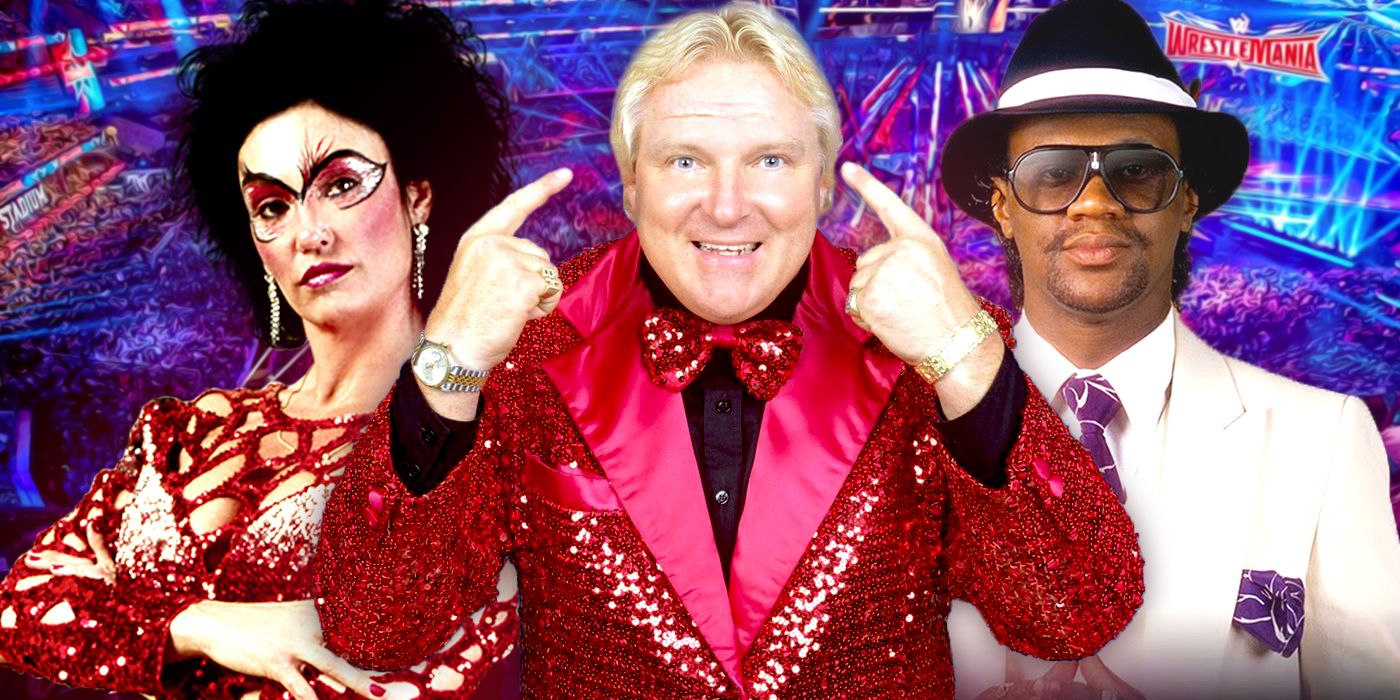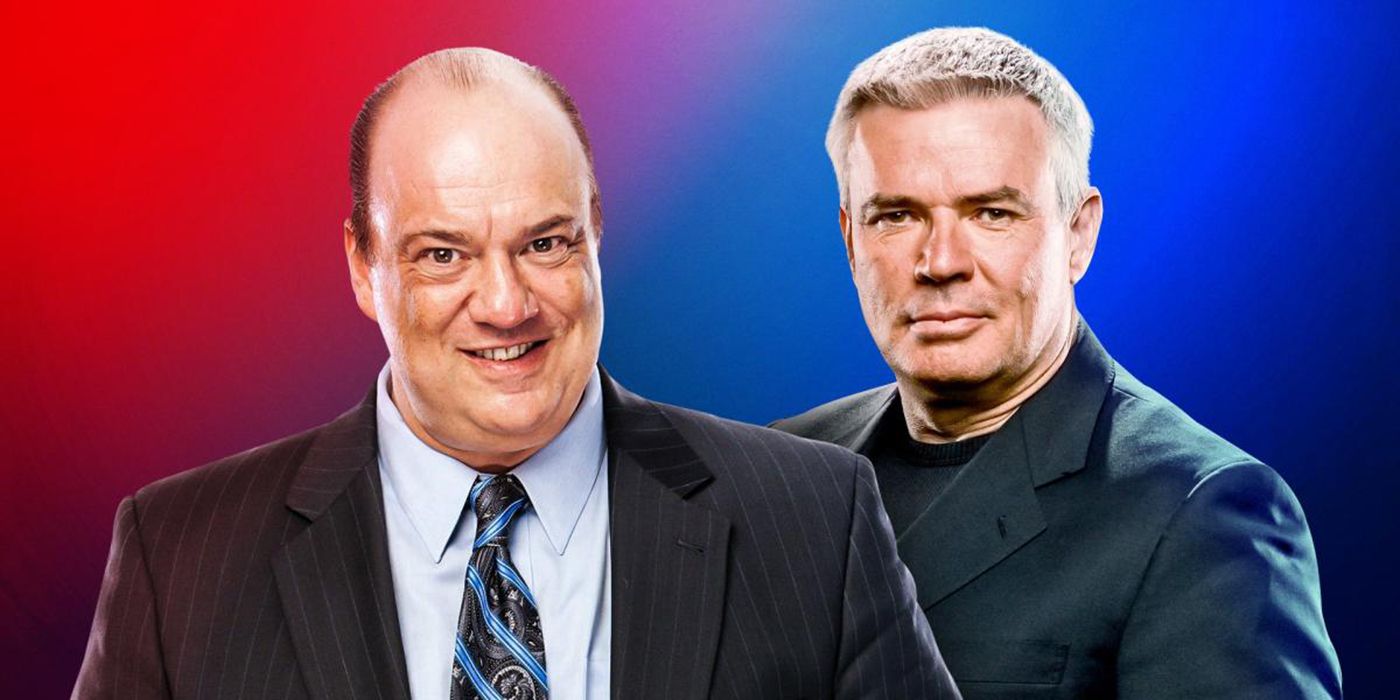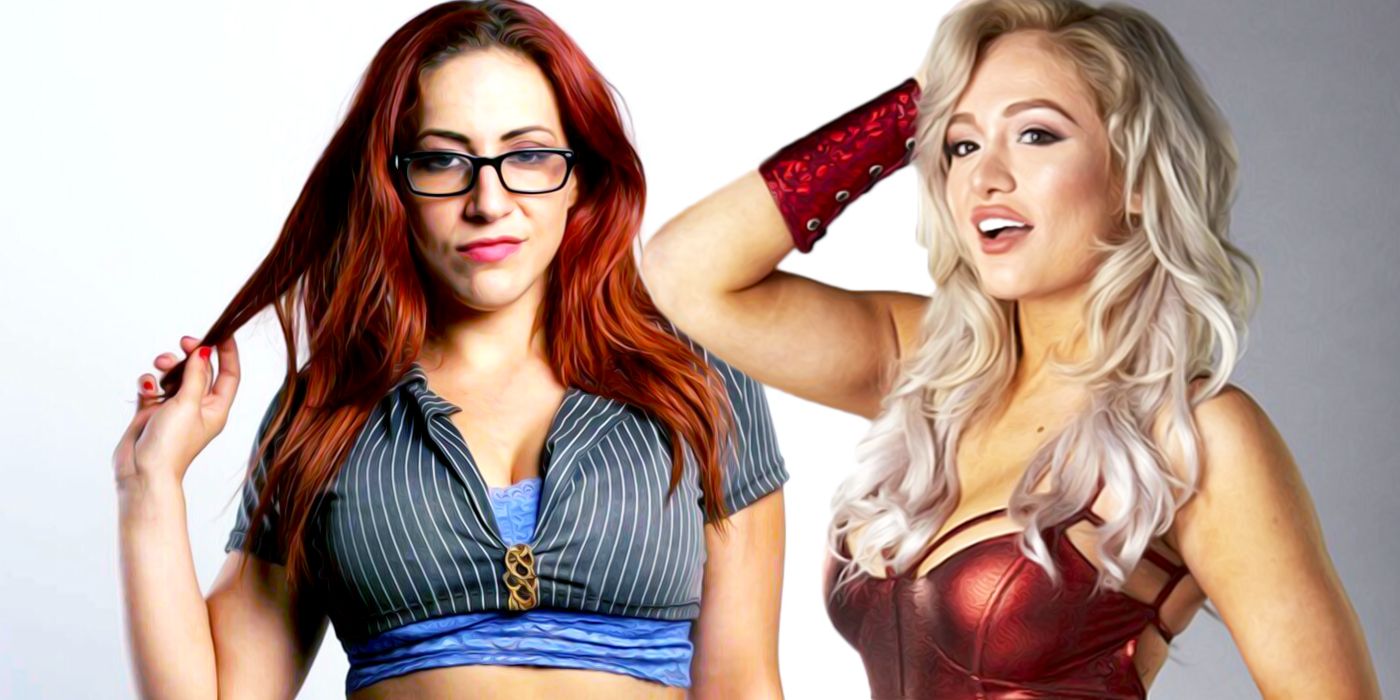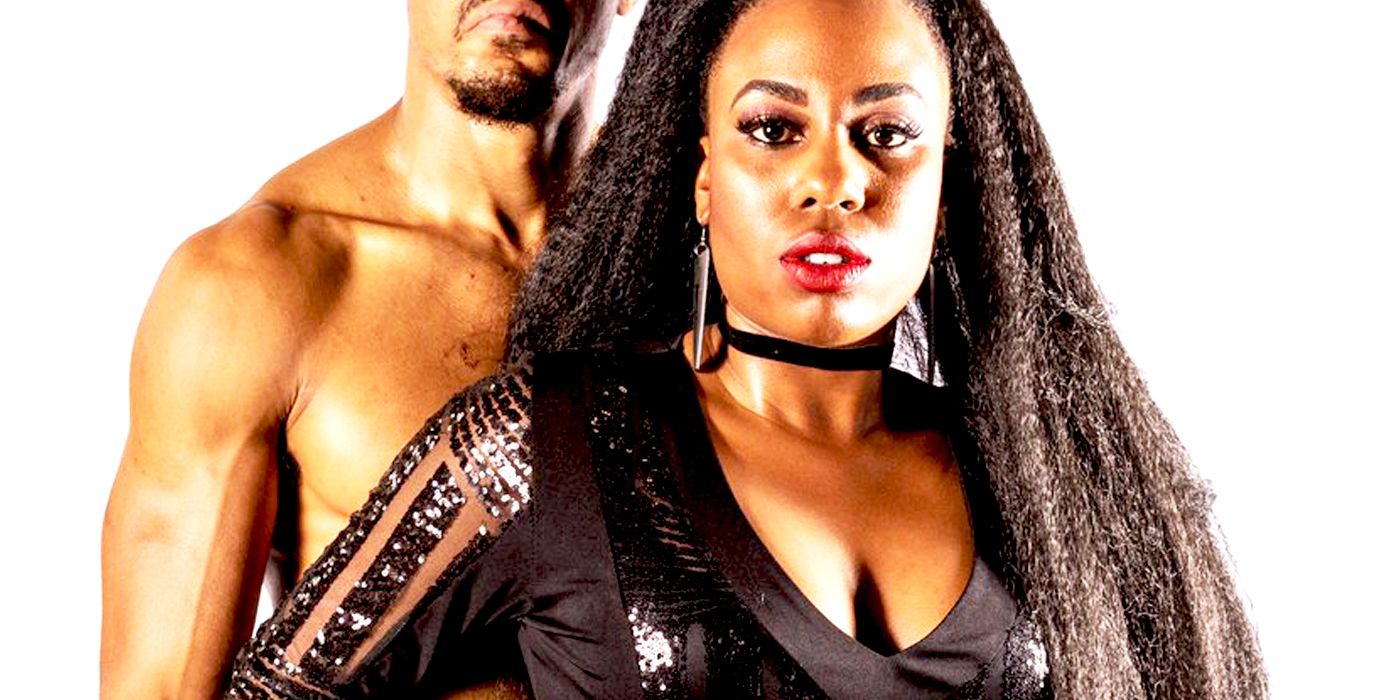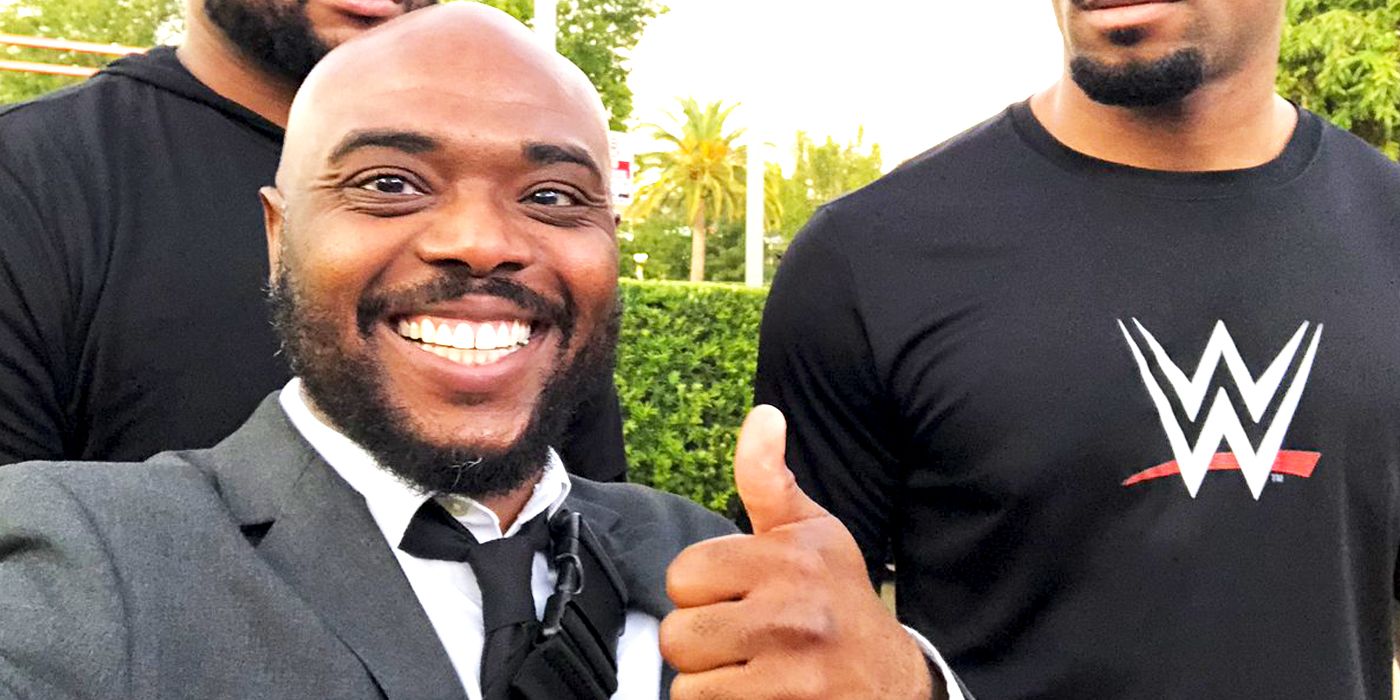From Sensational Sherri and the Heartbreak Kid Shawn Michaels, to the advocate Paul Heyman and the Beast Brock Lesnar, some of the biggest superstars in wrestling history have had an assist from the outside to help launch their careers sky-high. As the Attitude Era began to crescendo, though, wrestling managers appeared to fade away. Managers are a rarity these days, reserved for big stars in the case of a legend like Heyman and Lesnar, or for wrestlers who are perceived as needing some kind of boost before they can become successful solo acts.
As both professional wrestling and the athletes that dive into the industry continue to evolve, the misunderstood role of manager may be perceived as unnecessary. Some of wrestling’s most famous managers were mouthpieces for performers who simply didn’t need to speak -- the supernatural Brothers of Destruction, in Bearer’s case, or Lesnar, who was instantly elevated to superstar status by having the legendary Heyman to speak on his behalf. These days wrestlers are expected to do it all: high spots, heavy hits, and delivering solid performances on the mic, all without a manager holding their hand.
It may not help that manager positions are limited by being almost exclusively associated with heels in a WWE where it’s often difficult to tell who’s the good guy or the bad guy in any given storyline among top stars. Modern managers like Lana and Maryse have accompanied their villainous husbands (or, in Lana’s case currently, villainous boyfriend) into the ring to further rally the crowd against them. A manager almost immediately makes a wrestler come across as arrogant and above it all, whether the crowd thinks that’s warranted (Lesnar, or more recently Nakamura and Sami Zayn) or not (Jinder Mahal and the Singh Brothers, who served this role to incredible effect).
As wrestling journalist David Bixenspan noted at Deadspin earlier this year, “Legend has it that managers—like strong tag teams, wrestling rings with industry-standard cable ropes, and even words like “belt”—are considered “too rasslin’” by Vince McMahon.” The storied history of wrestling managers does conjure up a particularly old school vibe -- it immediately calls to mind the likes of the “Mouth of the South,” Jimmy Hart and his work with the Hart Foundation, or someone like Bobby “The Brain” Heenan, who managed legendary wrestling figures like Harley Race and Mr. Perfect himself, Curt Hennig.
If your perception of managers is that they’re too old fashioned, and you insist on having them continue to fulfill a limited perception of managers exclusively as “training wheels” for performers who need an assist, then it’s hard to envision a path for future managers to find solid footing as performers in their own right in the WWE.
Other promotions in recent years seem to have been following their lead. As is the case with wrestlers themselves, most managers are multi-talented and are often wrestlers, too. Wrestler Veda Scott managed the likes of IMPACT star Moose and WWE’s Cedric Alexander during her time with Ring of Honor, but Scott is generally a wrestler first and manager second, as was the case more recently with former IMPACT star (and now NXT signee) Scarlett Bordeaux and EVOLVE’s Priscilla Kelly during her time with Austin Theory.
All three are exceptionally talented wrestlers, and there’s no shortage of managers throughout history who have found themselves in the ring at some point. (Certainly it’s also in everyone’s best interest for a manager to know how to be safe in a match.) But is there any space in wrestling now for managers who are managers first, and in-ring performers incidentally, rather than the other way around? What does that role look like?
To find out, wrestling fans should -- as WWE has, this year -- turn their attention back to the independent wrestling scene. Two names have established themselves as some of the top managers in the game in recent years: Ayla Fox (with her husband AR Fox, along with the Skulk, in EVOLVE, and the Triple Aye team of Aja Perera and Big Swole in SHINE) and Mr. Malcolm Bivens, formerly known as Stokely Hathaway. Both are more than capable in the ring, but perform as managers first and foremost, demonstrating exactly what makes the role so valuable.
AR Fox, Perrera, and Big Swole are some of the most talented and charismatic names in the game -- all of them have had successful independent careers on their own, but Ayla Fox’s passion and confidence in both her own skills and theirs makes them all feel like high-powered superstars. Experiencing AR, Ayla, and the Skulk live and in person is an absolutely gleeful experience. Ayla has the advocate energy Heyman brings to the table. She’s not there to let anyone waste her time, or her wrestlers’ time, and it makes the talent she works with feel like a big deal.
Bivens, in his own way, does the same. As Hathaway, he’s best known for his time managing the Dream Team of Faye Jackson, Thomas Sharp, ROH’s Jonathan Gresham, and AEW’s Maxwell Jacob Friedman, before finding himself managing (and eventually owning) EVOLVE’s famous Catch Point stable. He can wrestle, he’s funny, and he’s got one of the best social media presences in wrestling, as evidenced by the recently-concluded series of Twitter videos he did chronicling his missing CD Player that featured cameos from the likes of the Street Profits, Adam Cole, The Rock’s daughter Simone Johnson, and Nia Jax.
Bivens knows how to make you love to hate him without falling prey to the cheap heat other managers might find themselves stumbling into (an affair storyline, perhaps). Bivens signed with WWE in March of this year and just recently made a brief cameo during the Cruiserweight championship match between Lio Rush and Angel Garza, seeming to scout for a Bivens Enterprise recruit to join Taynara Conti after she was recruited at a house show in October.
Both Ayla Fox and Bivens know how to walk the fine line as a manager between elevating their clients and getting the crowd invested in them. Both have an effortless charisma and a knack for redirecting it to their in-ring partner without overshadowing anyone. That, at the end of the day, is what made legendary managers of the past truly great. It’s an ability that’s difficult to cultivate in environments like RAW and Smackdown, where perhaps Vince McMahon sees them as old-fashioned accessories rather than full-blown performers and a vital asset for helping performers gain confidence on the mic, in the footsteps of Jimmy Hart.
With luck, Bivens’ signing is an indication that at least NXT understands the value a skilled manager can bring to the table. His time on television has been fleeting so far, but if NXT lets him debut with a big splash in the coming weeks (or even maybe at War Games) then it could herald a new era for managers in a WWE that has allowed the vital role to fall by the wayside for years.

